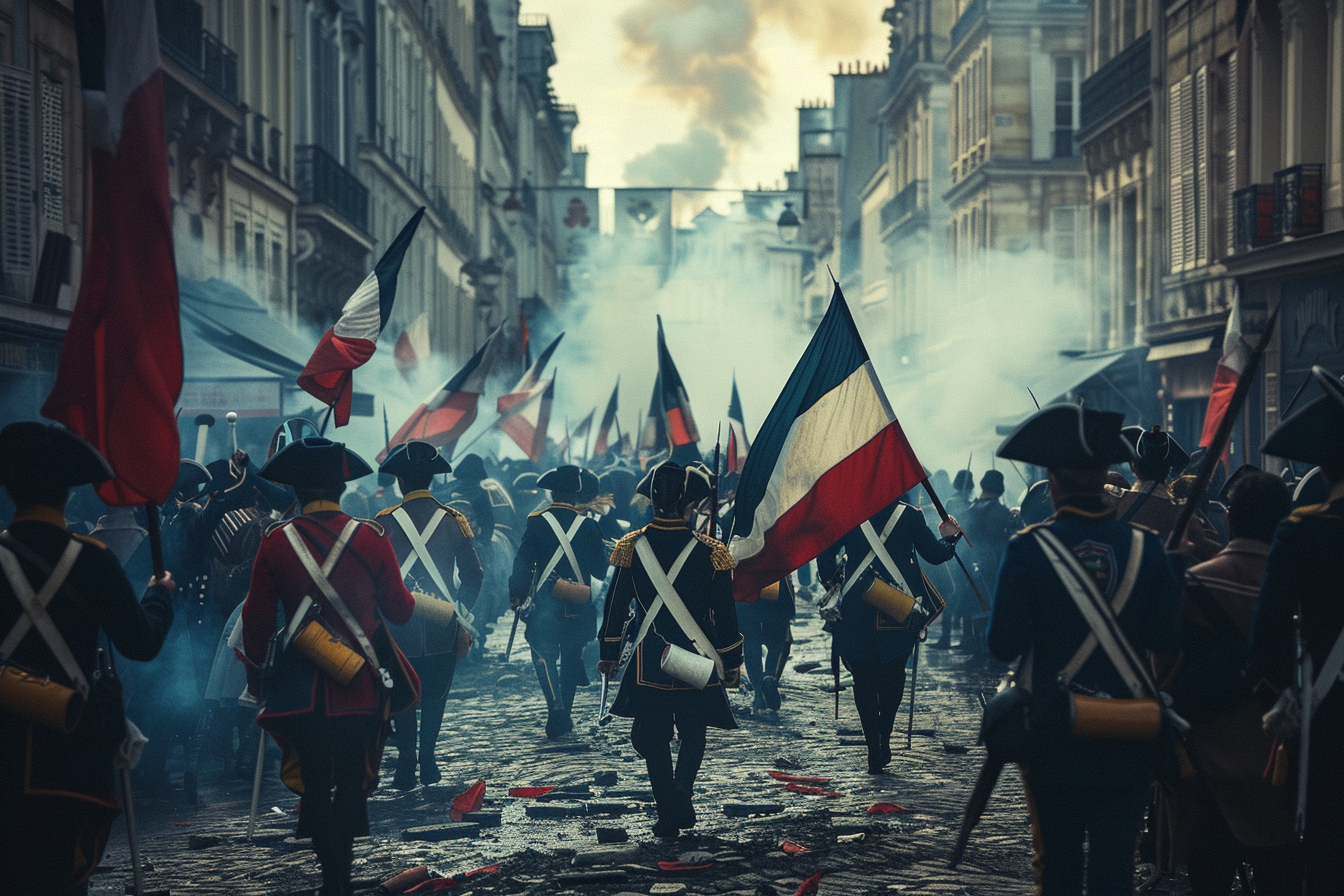
The French Revolution, which began in 1789 and lasted until 1799, was a period of significant social, political, and economic upheaval in France.
It reshaped the country and had a profound impact on the world, influencing the course of history in numerous ways.
This blog post delves into the key causes and events of the French Revolution, the dark period known as the Reign of Terror, and the lasting legacy of this transformative era.
Causes of the French Revolution
Social inequality
French society was divided into three estates: the clergy, the nobility, and the commoners (including peasants, artisans, and the bourgeoisie).
Despite being the largest group, the commoners had the least power and faced heavy taxes.
This inequality created widespread discontent among the people.
- Read also: Beyond Bastille Day: Exploring the French Vs Haitian Revolution
- Read also: From Royals to Radicals: 10 Key Figures of The French Revolution
Absolutism
The French monarchy held absolute power, with King Louis XVI making all decisions.
The lavish lifestyle of the monarchy and their detachment from the struggles of common people intensified dissatisfaction.
Many wanted a more fair and inclusive system of government where their voices could be heard.
Enlightenment ideas
During the Enlightenment period, thinkers like Rousseau, Voltaire, and Montesquieu promoted ideas of democracy, liberty, and equality.
They critiqued the existing social and political systems, encouraging French citizens to question the authority of their rulers and demand more rights.
Food shortages
Before the revolution, France faced economic difficulties and food shortages.
Poor harvests, high bread prices, and widespread hunger worsened the plight of ordinary people.
These hardships fueled anger towards the ruling elite, as they seemed indifferent to the suffering of the common folk.
American revolution
The success of the American Revolution (1775-1783) showed the French people that it was possible to overthrow an oppressive regime and establish a new order based on democratic principles.
This inspired the French to pursue similar changes in their own country.

Key Events of the French Revolution
The French Revolution was a time of major changes that transformed France from a monarchy to a republic.
Here are the important events that shaped this historic period:
Estates-General meeting (May 1789)
In May 1789, King Louis XVI convened the Estates-General, a gathering representing the three estates of French society: the clergy, the nobility, and the commoners.
The Third Estate, representing the majority of the population, felt unfairly treated and demanded more representation.
Frustrated by the lack of progress, they declared themselves the National Assembly and pledged to create a new constitution for France.
Tennis Court Oath (June 20, 1789)
Faced with resistance from the king, members of the National Assembly gathered at a nearby tennis court in Versailles.
There, they took the famous Tennis Court Oath, promising not to disband until they had established a constitution that limited the king’s powers and ensured more rights for the people.
This oath symbolized their determination to bring about change and marked a significant moment in the revolution.
Bastille Storming (July 14, 1789)
On July 14, 1789, Parisians stormed the Bastille, a fortress and prison seen as a symbol of royal tyranny.
The event sparked widespread rebellion across France against the monarchy’s authority.
The fall of the Bastille symbolized the people’s defiance and their readiness to challenge oppressive rule, marking the beginning of the French Revolution.
National Convention
Following the initial phases of the revolution, the National Convention replaced the National Assembly.
It abolished the monarchy and declared France a republic.
The Convention drafted a new constitution that established radical changes in governance and social structure.
It also set up the Directory, a committee that governed France during turbulent times.
Napoleon’s Rise (1799)
The revolution led to significant political instability, which Napoleon Bonaparte, a military general, capitalized on.
In 1799, he staged a coup d’état, overthrowing the Directory and seizing power.
This marked the end of the revolutionary period and the start of Napoleon’s rule.
His leadership reshaped France and Europe, leaving a lasting impact on history.

Reign of Terror (A Dark Turn)
The rise of radical groups
During the French Revolution, radical political factions emerged, notably the Jacobins led by Maximilien Robespierre.
These groups believed in taking drastic measures to safeguard the revolution and eliminate those they saw as threats.
The reign of terror (1793-1794)
The Reign of Terror was a harrowing phase in French history marked by widespread fear and violence.
It was orchestrated by the Committee of Public Safety, a powerful governing body during the revolution.
Their goal was to root out counter-revolutionary elements and ensure the survival of the revolutionary ideals.
- Targeted executions: Thousands of people, including King Louis XVI and Queen Marie Antoinette, were executed by guillotine.
- Fear and paranoia: People lived in constant dread of being accused, arrested, and executed as enemies of the revolution.
- Impact on society: Families were torn apart, and communities were divided as neighbors turned against each other out of fear or political allegiance.
Legacy of the French Revolution
Spread of enlightenment ideas
The French Revolution had a big impact far beyond France.
It spread Enlightenment beliefs like democracy, liberty, and equality.
These ideas challenged old-fashioned monarchies and motivated people in other countries to fight for similar freedoms.
Napoleonic code
After the revolution, Napoleon Bonaparte introduced the Napoleonic Code.
This was a set of laws meant to make the legal system fairer and more consistent across France.
It focused on equal treatment under the law, property rights, and personal freedoms.
Many countries later used it as a model for their own legal reforms.
End of feudalism
Before the revolution, France was deeply divided by feudalism.
This meant that noble families had special privileges and power just because of their birth.
The revolution changed that by ending these privileges.
It encouraged a society where people could advance based on their skills, not just their social status.
Inspiration for other revolutions
The French Revolution inspired people in Europe and the Americas to stand up against oppressive rulers.
It showed that ordinary citizens could challenge and overthrow unfair governments.
The revolution’s ideas about freedom, equality, and people’s rights sparked major changes in politics and society worldwide.

- Read also: From the Gauls to Macron: A Fascinating History of France Timeline
- Read also: Idealism vs Reality: The Rise and Fall of The Girondins
Conclusion
The French Revolution was a pivotal event in world history.
It arose from deep social inequalities, absolutist rule, Enlightenment ideas, economic hardships, and the inspiration of the American Revolution.
Through key events like the Estates-General meeting, the Tennis Court Oath, the storming of the Bastille, and the rise of Napoleon, the revolution transformed France and left a lasting legacy.
Its impact is still felt today, as it paved the way for modern democratic societies and inspired countless movements for justice and equality.



